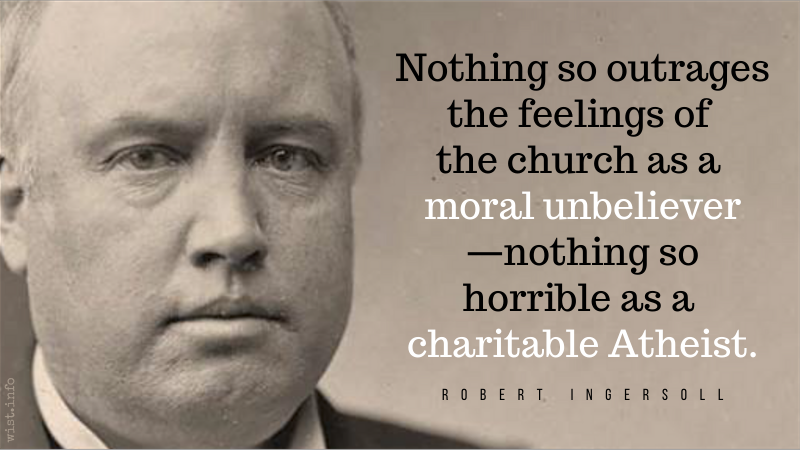Pedantry prides herself on being wrong by rules; while common sense is contented to be right, without them.
Charles Caleb "C. C." Colton (1780-1832) English cleric, writer, aphorist
Lacon: Or, Many Things in Few Words, Vol. 1, § 48 (1820)
(Source)
Quotations about:
legalism
Note not all quotations have been tagged, so Search may find additional quotes on this topic.
We cannot, by total reliance on law, escape the duty to judge right and wrong [….] There are good laws and there are occasionally bad laws, and it conforms to the highest traditions of a free society to offer resistance to bad laws, and to disobey them.
Alexander M. Bickel (1924-1974) Romanian-American law professor, constitutional scholar
Politics and the Warren Court, Part 3, ch. 5 “Civil Rights and Civil Disobedience” (1965)
(Source)
In all such oaths we are not to attend to the mere form of words, but the true design and intention of them.
[Semper autem in fide quid senseris, non quid dixeris, cogitandum.]
Marcus Tullius Cicero (106-43 BC) Roman orator, statesman, philosopher
De Officiis [On Duties; On Moral Duty; The Offices], Book 1, ch. 13 (1.13) / sec. 40 (44 BC) [tr. Cockman (1699)]
(Source)
(Source (Latin)). Alternate translations:
In obligations of faith, it is the meaning always, not the words that are to be considered.
[tr. McCartney (1798)]
In a promise, what you thought, and not what you said, is always to be considered.
[tr. Edmonds (1865)]
In a promise, what you mean, not what you say, is always to be taken into account.
[tr. Peabody (1883)]
A promise must be kept not merely in the letter, but in the spirit.
[ed. Harbottle (1906)]
In the matter of a promise one must always consider the meaning and not the mere words.
[tr. Miller (1913)]
You should always, in a matter of trust, think of what you mean, not of what you say.
[tr. Edinger (1974)]
Pedantry prides herself on being wrong by rules; while common sense is contented to be right without them.
Charles Caleb "C. C." Colton (1780-1832) English cleric, writer, aphorist
Lacon, #48 (1825)
(Source)
Nothing so outrages the feelings of the church as a moral unbeliever — nothing so horrible as a charitable Atheist.
Injustice often arises also through chicanery, that is, through an over-subtle and even fraudulent construction of the law. This it is that gave rise to the now familiar saw, “More law, less justice.”
[Existunt etiam saepe iniuriae calumnia quadam et nimis callida sed malitiosa iuris interpretatione. Ex quo illud “summum ius summa iniuria” factum est iam tritum sermone proverbium.]
Marcus Tullius Cicero (106-43 BC) Roman orator, statesman, philosopher
De Officiis [On Duties; On Moral Duty; The Offices], Book 1, ch. 10 (1.10) / sec. 33 (44 BC) [tr. Miller (1913)]
(Source)
(Source (Latin)). Alternate translations:
But another great spring from which injuries arise, is some quirk or cavil, and an oversubtle and malicious interpretation of the laws; from whence that saying, "The height of justice is the height of roguery," is now become a daily and common proverb among us.
[tr. Cockman (1699)]
Injustice is often done by artful evasions, and from a too shrewd, but malicious interpretation of the laws. Hence the proverb, "the strictest justice is the greatest injury," has become quite familiar in conversation.
[tr. McCartney (1798)]
Very often wrongs arise through a quirk, and through a too artful but fraudulent construction of the law. Hence, "the rigour of law is the rigour of injustice," is a saying that has now passed into a proverb.
[tr. Edmonds (1865)]
There are, also, wrongs committed by a sort of chicanery, which consists in a too subtle, and thus fraudulent, interpretation of the right. Hence comes the saying: The extreme of right is the extreme of wrong.
[tr. Peabody (1883)]
A common form of injustice is chicanery, that is, an over-subtle, in fact a fraudulent construction of the law. Hence the hackneyed proverb: "The greatest right is the greatest wrong."
[tr. Gardiner (1899)]
A perversion of justice, some extremely clever but harmful interpretation of a statute, also is a frequent cause of wrongdoing. Hence we have the saying, "Extreme legality is the worst law," a proverb become a cliche by daily use.
[tr. Edinger (1974)]
See Terence.
He took my seat and smiled again, like an affable crocodile. He was probably a very principled man, too. So were they all, all principled men. And women. There were few things more annoying than a visibly principled person. Or more troublesome. Most of the ones I’d met could have used a little uncertainty to dilute their principled-ness.
He spoke the following parable to some people who prided themselves on being virtuous and despised everyone else, “Two men went up to the Temple to pray, one a Pharisee, the other a tax collector. The Pharisee stood there and said this prayer to himself, ‘I thank you, God, that I am not grasping, unjust, adulterous like the rest of mankind, and particularly that I am not like this tax collector here. I fast twice a week; I pay tithes on all I get.’ The tax collector stood some distance away, not daring even to raise his eyes to heaven; but he beat his breast and said, ‘God, be merciful to me, a sinner.’ This man, I tell you, went home again at rights with God; the other did not. For everyone who exalts himself will be humbled, but the man who humbles himself will be exalted.”
The Bible (The New Testament) (AD 1st - 2nd C) Christian sacred scripture
Luke 18:9-14, “The Parable of the Pharisee and the Tax Collector” [Jerusalem]
(Source)
And he spake this parable unto certain which trusted in themselves that they were righteous, and despised others: Two men went up into the temple to pray; the one a Pharisee, and the other a publican. The Pharisee stood and prayed thus with himself, God, I thank thee, that I am not as other men are, extortioners, unjust, adulterers, or even as this publican. I fast twice in the week, I give tithes of all that I possess. And the publican, standing afar off, would not lift up so much as his eyes unto heaven, but smote upon his breast, saying, God be merciful to me a sinner. I tell you, this man went down to his house justified rather than the other: for every one that exalteth himself shall be abased; and he that humbleth himself shall be exalted.
[KJV]
He also told this parable to some who trusted in themselves that they were righteous and regarded others with contempt: “Two men went up to the temple to pray, one a Pharisee and the other a tax collector. The Pharisee, standing by himself, was praying thus, ‘God, I thank you that I am not like other people: thieves, rogues, adulterers, or even like this tax collector. I fast twice a week; I give a tenth of all my income.’ But the tax collector, standing far off, would not even lift up his eyes to heaven but was beating his breast and saying, ‘God, be merciful to me, a sinner!’ I tell you, this man went down to his home justified rather than the other, for all who exalt themselves will be humbled, but all who humble themselves will be exalted.”
[NRSV]
Jesus also told this parable to people who were sure of their own goodness and despised everybody else. “Once there were two men who went up to the Temple to pray: one was a Pharisee, the other a tax collector. The Pharisee stood apart by himself and prayed, ‘I thank you, God, that I am not greedy, dishonest, or an adulterer, like everybody else. I thank you that I am not like that tax collector over there. I fast two days a week, and I give you one tenth of all my income.’ But the tax collector stood at a distance and would not even raise his face to heaven, but beat on his breast and said, ‘God, have pity on me, a sinner!’ I tell you,” said Jesus, “the tax collector, and not the Pharisee, was in the right with God when he went home. For those who make themselves great will be humbled, and those who humble themselves will be made great.” [GNT]
It is easier to make a saint out of a libertine than out of a prig.
George Santayana (1863-1952) Spanish-American poet and philosopher [Jorge Agustín Nicolás Ruíz de Santayana y Borrás]
The Life of Reason or The Phases of Human Progress, Vol. 3 “Reason in Religion,” ch. 11 “Spirituality and Its Corruptions” (1905-06)
(Source)
When man appears before the Throne of Judgment, the first question he is asked is not: “Have you believed in God?” or “Have you prayed and observed the ritual?” He is asked: “Have you dealt honorably and faithfully in all your dealings with your fellow man?”
I have spent all my life under a communist regime and I will tell you that a society without any objective legal scale is a terrible one indeed. But a society with no other scale but the legal one is not quite worthy of man either. A society which is based on the letter of the law and never reaches any higher is taking very scarce advantage of the high level of human possibilities. The letter of the law is too cold and formal to have a beneficial influence on society. Whenever the tissue of life is woven of legalistic relations, there is an atmosphere of moral mediocrity, paralyzing man’s noblest impulses.
Alexander Solzhenitsen (1918-2008) Russian novelist, emigre [Aleksandr Isayevich Solzhenitsyn]
“A World Split Apart,” Commencement Address, Harvard (8 Jun 1978)
(Source)














